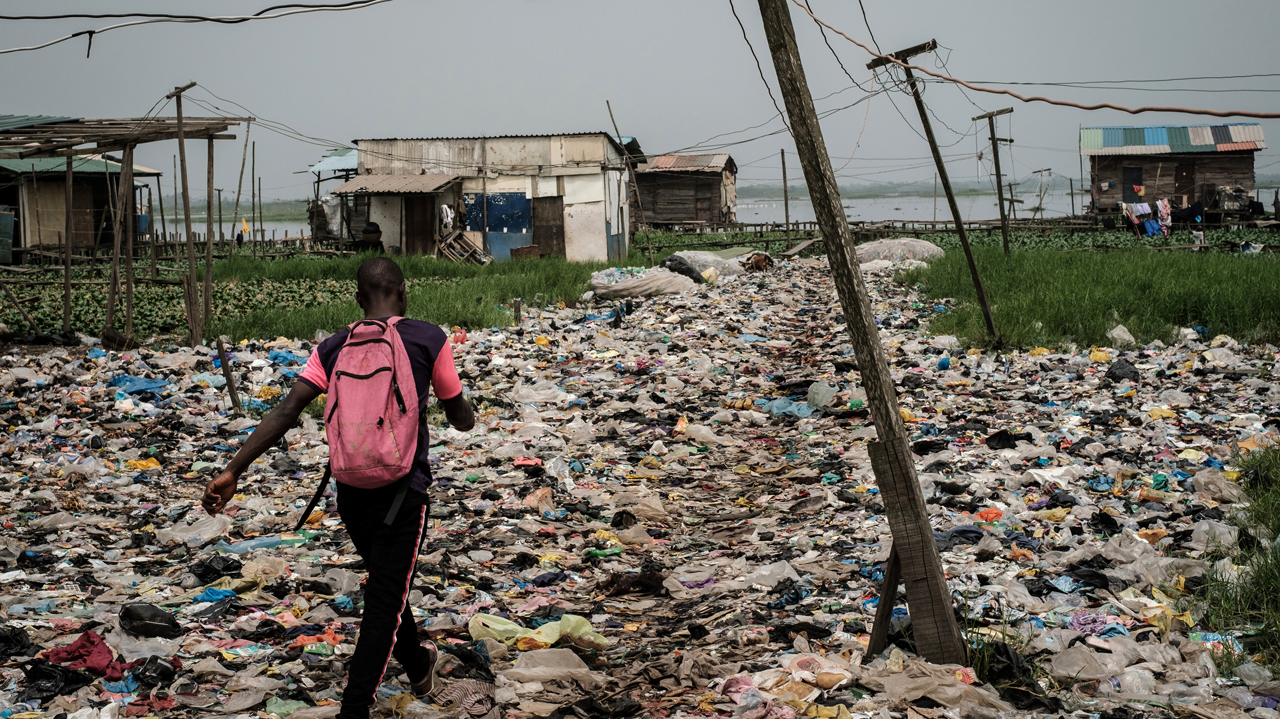Lagos State government and Agence Française de Développement (AFD) have assured Lagosians and other satellite communities in the state of the inclusive implementation of the Omi Eko project, recently launched by the Lagos State Governor, Mr. Babajide Sanwo-Olu.
The assurances were made during the courtesy visit of some officials of state government and AFD to the palace of HRH Oba Afeez Oriyomi Adaran Shittu, (ADEYEMI 1) Agbojojoye of Ibasa, Ijegun, Egba, Oguntedo & Satellite Town in Oriade LCDA, Lagos.
Lagos State government, in collaboration with the AFD, European Union (EU), and European Investment Bank (EIB), had launched the €410 million Omi Eko Project to transform Lagos’ inland waterways into a world-class transportation system.
According to the government, the project is aimed at providing cleaner, faster, and safer water transport, reducing congestion, and promoting sustainable mobility.
Speaking after briefing the monarch on the state’s preparedness to transform waterways transportation, the Commissioner for Transportation, Mr. Oluwaseun Osiyemi, said: “The whole essence of this project is to develop state’s inland waterways. And in doing that, communities will benefit because we would have jetties, we would have electric ferries that would come. Also, there will be upgrades present jetties.
It’s also an opportunity for us to move from fossil to clean energy, which this project will also provide.”
He also stated that the project speaks a lot to inclusivity, which means that the communities would be benefiting and would be fully carried along in the execution. There will be a lot of stakeholders’ engagements, training so that the communities would understand how to manage the assets when handed over to them,” he added.
An elated Osiyemi reassured the communities that the project will not take away their source of livelihood but enhance it.
Also, the head of the AFD delegation and the Director, Africa Department, AFD, Sandra Kassab, said the visit is to brief community leaders and youths about the project.
“We wanted to have the opportunity to visit the communities that will benefit from this important project. It is also to listen to their expectations, needs, and perhaps, some concerns they may have regarding the project.”
Kassab, who spoke on the project financing, said, “AFD’s support will be provided in the form of a sovereign loan of up to EUR 130 million to the Federal Republic of Nigeria, which will be on-lent to Lagos State. EIB will co-finance the project with a EUR 170 million credit facility.
In line with the Global Gateway initiative, the EU is completing the financial package with a EUR 60 million grant to finance the electrical charging infrastructure to power e-vessels.”
She added that the key highlights of the project are development of 15 priority ferry routes, spanning 140 kilometers, deployment of 75 hybrid-electric ferries to reduce emissions and promote clean mobility, construction of 25 modern ferry terminals and jetties with electric charging facilities, expected to create thousands of jobs and stimulate economic growth and reduction of CO2 emissions by 41,000 tons annually and improved air quality.
On the outcomes of the project when completed, Kassab disclosed that the plan is to convey “100,000 public transport users per day on the priority IWT routes at the opening of the service.”
She also expects that the project will result in three hours of travel time saved on main Omi Eko routes at peak hours, 41,000 tons of CO² emissions reduced every year, 35 per cent of e-vessels’ power consumption generated through solar energy; zero boat accidents on the Omi Eko routes and an upgraded policy and regulatory framework through the implementation of a Vessel Industry Transition Programme (VITP) for the para-transit industry.”
Speaking on behalf of the community youths, the Chairman of Ibasa, Ijegun, Egba, Oguntedo & Satellite Town, Comrade Karim Adewale Idowu, thanked the government, AFD, its partners for finding their community worthy for the projects.
He called on the government to ensure that the development is mutually beneficial, not one that will take away the resident’s present sources of livelihood.






